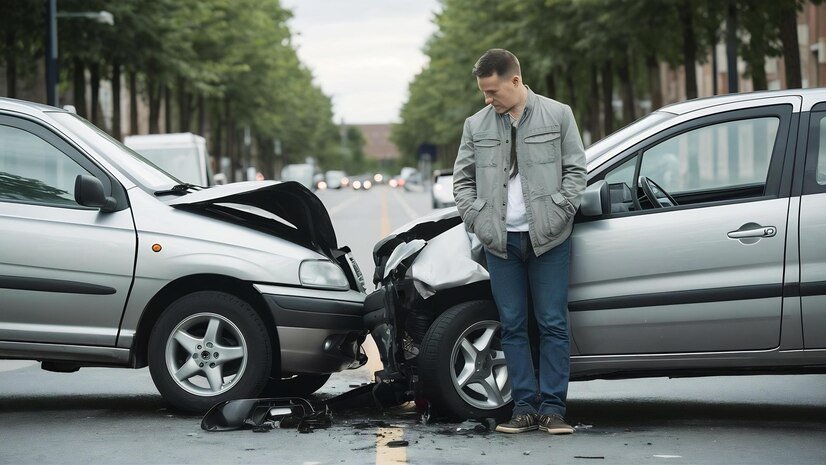The Emotional Impact of Surviving a Single-Vehicle Rollover Accident
Single-vehicle rollover accidents are extremely dangerous and victims often end up with severe injuries and tragic deaths. Research says rollover crashes killed 17% of car occupants, 30% of pickup occupants, and 26% of SUV occupants in 2022. The brutal nature of these accidents can cause serious physical injuries and make survivors’ lives extremely difficult.
The trauma doesn’t end here. You also need to bear the emotional consequences that come with physical damage. These emotional aftermaths like anxiety and depression can have lasting effects. Hence, understanding the psychological impact is crucial for a complete recovery.
Let us look at the immediate repercussions and some of the long-term emotional challenges of surviving these accidents. Additionally, we will look at some important steps that you can take toward an emotional recovery.
The Immediate Repercussions
You would often get confused and end up in a state of shock after a serious single-vehicle rollover accident. The mind struggles to cope with the gravity of the situation.
As the initial shock fades, the physical pain takes over your mind and begins to manifest. A recent study shows almost half of road crash victims suffer chronic pain two years after the crash. Whether it’s a minor pain or a major injury, it could get overwhelming and can have a serious impact on your mental health.
Moreover, there could be a stage where you might potentially start to worry about physical recovery. You would also start feeling insecure about your financial stability and the ability to resume your normal life.
Fear of experiencing another accident like this in the future would further restrict your daily activities and make you feel lonely.
Occasionally, survivors start to feel guilty about their existence. This happens when the other people involved in the accident lose their lives. Self-blame and regret can worsen things in times like these.
Long-Term Emotional Challenges
Post-Traumatic Stress Disorder (PTSD) and Its Symptoms
The most serious long-term challenge of surviving a single-vehicle rollover accident is Post-Traumatic Stress Disorder (PTSD). PTSD is so common that approximately 3.9% of the world population suffers from it at some stage in their lives.
Survivors of such horrific accidents could experience constant flashbacks. They start to recall the accident as if it were happening again.
These types of nightmares and disturbing thoughts about past incidents could spoil your sleep and daily life. Additionally, individuals might get anxiety attacks and feel restless all the time. They could get easily freaked out by things that remind them of the accident.
These symptoms can affect a survivor’s ability to perform and engage in daily activities.
Dealing with Emotional Trauma
Survivors of severe single-vehicle rollover accidents can experience a wide range of emotions. For instance, let us consider the case of Nadia Johnson. She experienced a life-threatening single-vehicle rollover accident on June 14 in Rogers, Arkansas.
Nadia was knocked over while traveling alone, and her car rolled and threw her through the sunroof. Luckily, she survived. However, she went on to sustain severe injuries that changed her life completely. Nadia’s case highlights how emotionally traumatizing such events can be.
In situations like this, survivors often suffer from anxiety, depression, and a sense of helplessness. They also find it difficult to seek justice or file a lawsuit for the compensation they deserve because of their mental condition. However, according to Keith Law Group, victims of these incidents should know their rights and seek legal representation.
This is where a lawyer can make a huge difference. If you are one of those single-vehicle rollover accident victims residing in Rogers, contact a professional Rogers personal injury lawyer.
A personal injury lawyer can help you in securing compensation for emergency medical care, hospitalization, follow-up treatments, loss of earnings, etc. This will ease your financial burden and will help you focus on your recovery process.
Struggles with Anxiety and Depression
A lot of severe accident survivors struggle with anxiety and depression. Studies show that mental disorders are common after traffic crashes, with numbers ranging between 30 and 50%.
The accident trauma combined with physical recovery challenges can make these mental health issues worse. Constant worry, panic attacks, and deep sadness are some of the main symptoms of anxiety and depression.
The Road to Recovery
Healing from the psychological effects of a single-vehicle rollover accident is a long process where you need to be patient. That’s where seeking professional help becomes important.
Therapeutic techniques like cognitive-behavioral therapy (CBT), counseling, and medication help survivors overcome their symptoms and get back on their feet. The other key option for your recovery process could be the support groups. These groups help you with a sense of belonging and provide a chance to share experiences with others.
Connecting with others who have faced the same challenges could make you feel better and normal. It will also keep you free from loneliness.
Additionally, family and friends also play a crucial part in your recovery process. They can make you feel loved, support you, and help you out by understanding your problem. Open communication and empathy are key when we talk about a supportive environment.
All in all, surviving a single-vehicle rollover accident can be an extremely painful experience with lasting psychological effects. The physical and psychological impact can be overwhelming, leading to long-term challenges including post-traumatic stress disorder, depression, and anxiety.
It is essential to understand the magnitude of the emotional impact of these situations and seek the necessary support. Remember, healing takes time and you’ll see progress gradually. Hence, stick to your healing process and celebrate the small victories that come along your way.






